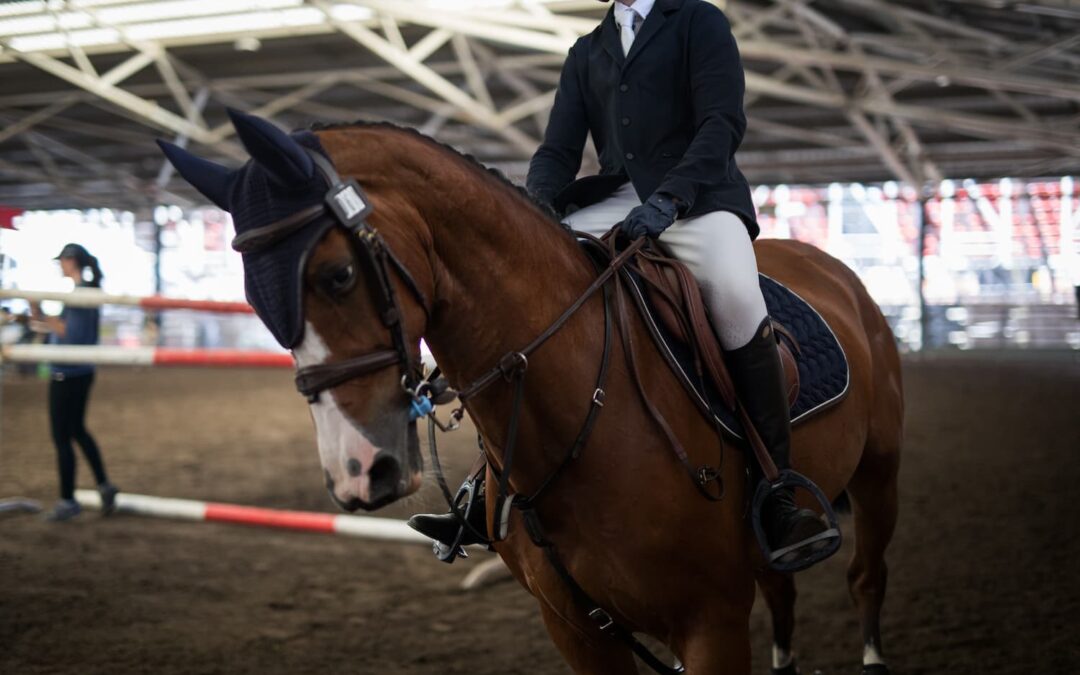Show season is one of the most exciting times of the year for horse owners. Whether you’re gearing up for a 4-H show, barrel racing, or halter classes, this time of year brings the chance to showcase months of hard work, dedication, and horsemanship. But before your trailer pulls into the Showgrounds, there’s one thing that should top your preparation list: vaccinations.
In the same way that your horse’s grooming, conditioning, and training prepare them for the spotlight, a proper vaccine schedule protects their health—and the health of every horse at the Show. If your horse isn’t fully vaccinated ahead of time, they’re at risk of picking up and spreading serious illnesses that could sideline their entire season.
Vaccines: A Foundation for Show-Ready Health
Showgrounds and show barns are buzzing with activity, horses coming and going, shared water sources, tied stalls, and busy warm-up rings. It’s the perfect environment for infectious diseases to spread quickly. Fortunately, staying current on vaccinations significantly reduces those risks.
Core and risk-based equine vaccinations recommended before Show season include:
- Equine Influenza: Easily spread through the air or direct contact, this virus causes fever, cough, nasal discharge, and fatigue.
- Equine Herpesvirus (Rhinopneumonitis or EHV): Can lead to respiratory illness, abortion in pregnant mares, and even neurological problems.
- Tetanus: This bacterial disease can enter the body through small wounds and cause severe muscle spasms and death.
- West Nile Virus: Spread by mosquitoes, it can result in neurological symptoms, weakness, and seizures.
- Rabies: Rare but always fatal; exposure can happen via bites from infected wildlife.
Many Shows, shows, and boarding barns in the tri-state area require proof of vaccination for entry. Without updated records, you could be denied access—even if your horse appears perfectly healthy.
Timing Your Vaccines for Peak Protection
Don’t wait until the week before the Show to think about vaccines. Most vaccines take 10 to 14 days to reach maximum effectiveness, and some need boosters several weeks apart.
Here’s a general timeline for Show-season vaccine planning:
- 6–8 Weeks Before the Show: Schedule a wellness exam and vaccine review. This allows time for booster doses if needed.
- 2–4 Weeks Before the Show: Administer core and risk-based vaccines based on your horse’s travel and exposure level.
- 1–2 Weeks Before the Show: Review health paperwork, update Coggins testing if needed, and pack your first aid and hygiene supplies.
It’s also a good time to check in on other aspects of horse health, including deworming, hoof care, dental float scheduling, and nutrition. A healthy immune system works better, and well-cared-for horses are less likely to pick up or spread illness during the stress of travel and competition.
Strong Health = Strong Performance
You’ve invested time and money into getting your horse show-ready. But no amount of training can overcome the setback of a fever, cough, or neurological episode that could have been prevented with a vaccine. Vaccinated horses:
- Perform more consistently by avoiding illness-related fatigue or discomfort.
- Stay calm and focused—fever and infection can spike anxiety and lower tolerance for noise, crowds, and handling.
- Lower the risk of outbreak-related show cancellations for the whole barn.
Shows and shows can be stressful, but a healthy horse is better able to adapt to new environments, stay relaxed in busy barns, and recover more quickly after each event. This doesn’t just protect your horse—it protects the investments and efforts of your whole team, from trainers and farriers to family members and fellow exhibitors.
Equine Vaccine Planning Isn’t One-Size-Fits-All
Each horse is unique. Show horses, pleasure horses, breeding mares, and retired companions may all need different vaccines based on travel, exposure risk, and medical history. That’s why an individualized vaccine schedule, created in partnership with an equine vet in CT, is the safest and most effective approach.
Factors that influence your horse’s vaccine plan include:
- Frequency of travel and exposure to other horses
- Age and overall health
- Immune status and prior vaccine history
- Regional disease risks in the tri-state area
Keep in mind that some horses—especially those under stress from training or hauling—may benefit from immune support, nutritional adjustments, or additional boosters ahead of show season.
Your Show Prep Checklist
Before you hit the road this Show season, make sure you’ve checked all the boxes:
✅ Up-to-date core and risk-based vaccinations
✅ Current negative Coggins test
✅ Physical exam and soundness check
✅ Hoof care up to date
✅ Dental float (if needed) completed
✅ Deworming and parasite control current
✅ Pack first aid, fly spray, and electrolytes
✅ Proof of vaccinations and health certificate in your travel folder
Need supplies? You can conveniently order vaccines, dewormers, grooming tools, and other pre-Show essentials from our online store.
Healthy Horse, Happy Show Season
Getting your horse Show-ready means more than loading the tack trunk and polishing boots. A smart vaccine plan gives your horse the protection they need to stay strong, focused, and in top condition throughout the show season. It also protects every horse sharing the warm-up ring, the wash stall, or the row of tied stalls next to yours.
Our team at Tri-State Veterinary Services is here to help you navigate Show season with confidence. With years of experience supporting equine competitors across CT, MA, and NY, we understand what your horse needs to compete safely and successfully. Whether you’re looking to schedule vaccines, a pre-Show checkup, or just need advice on which products to bring, we’re just a call away.
Let’s keep your horse healthy and help your Show season run smoothly—schedule your appointment today by calling (860) 459-0986.

